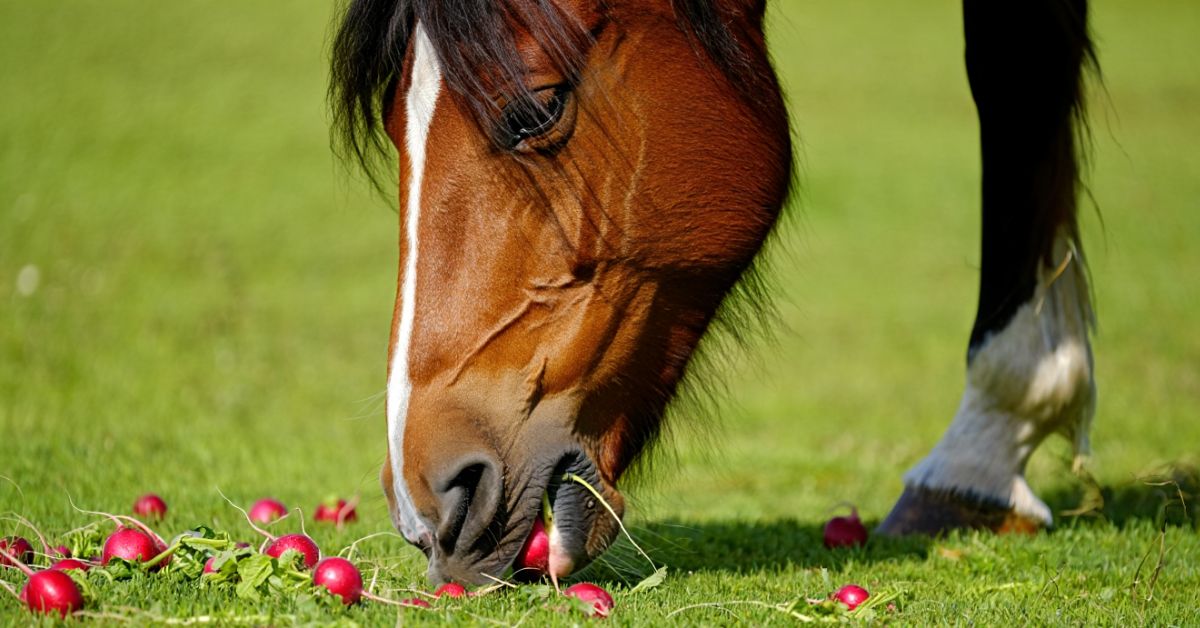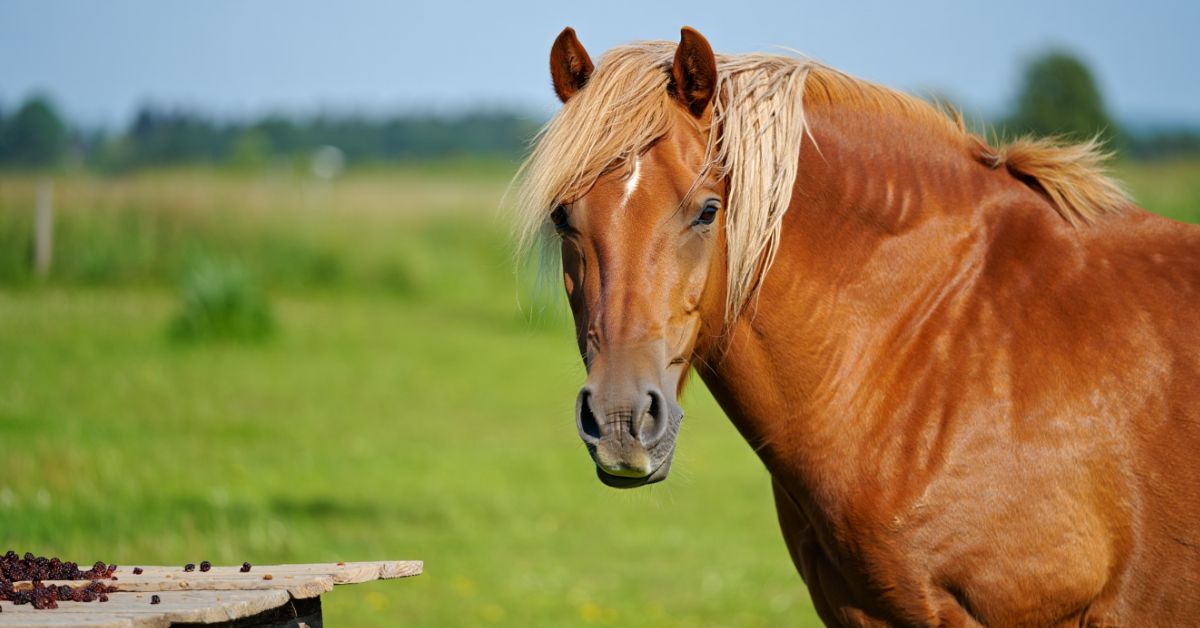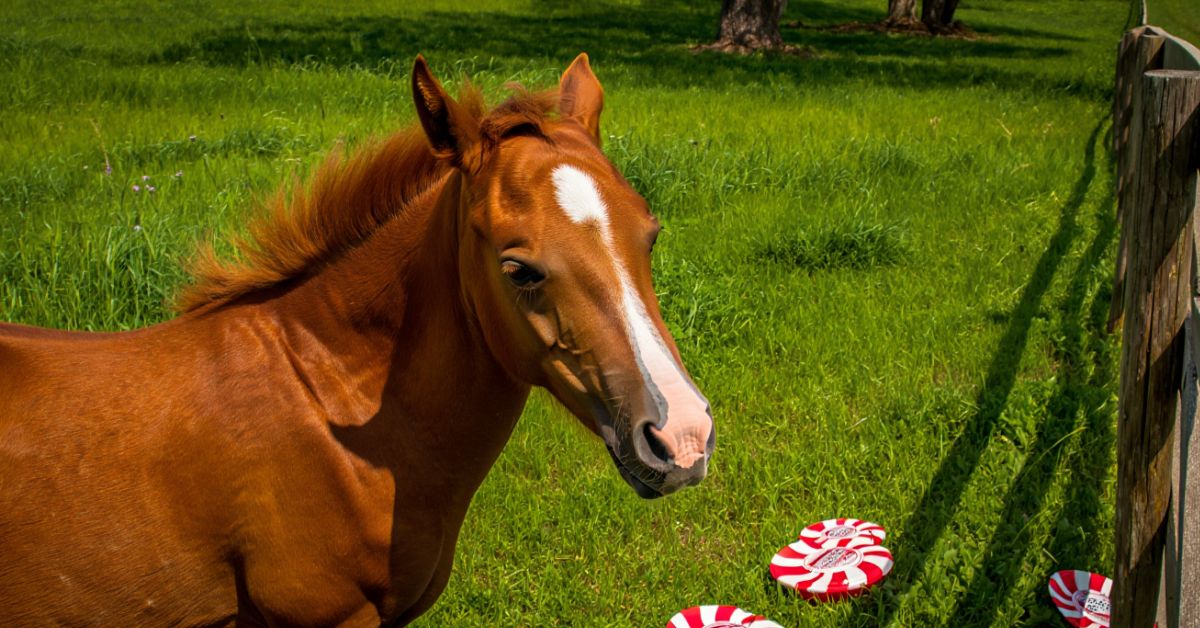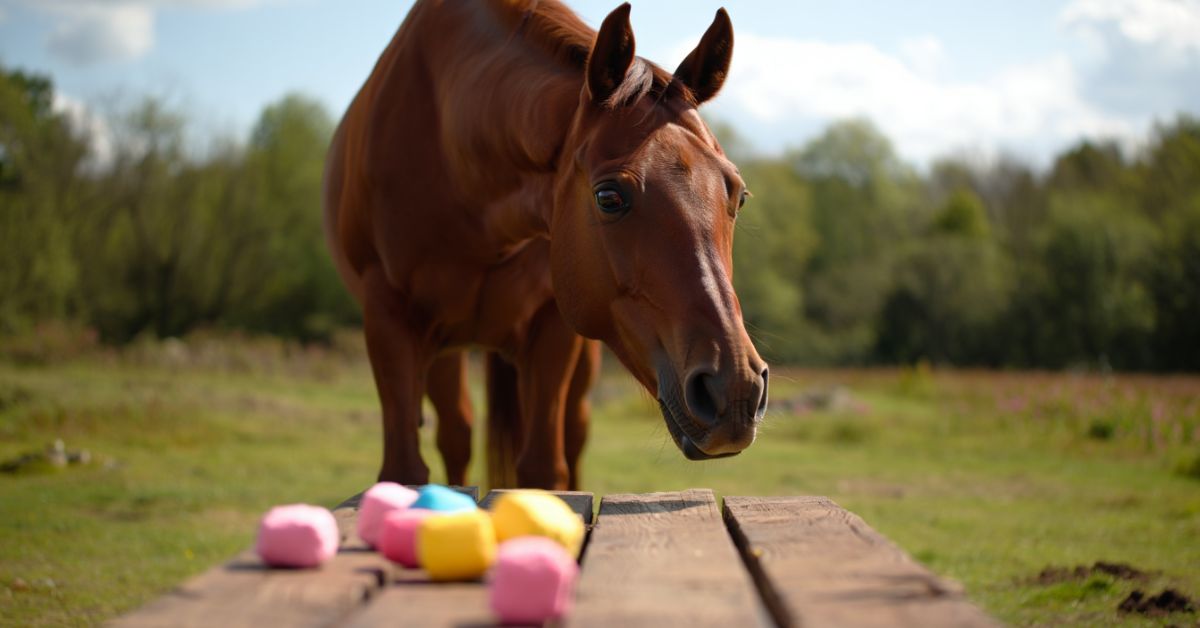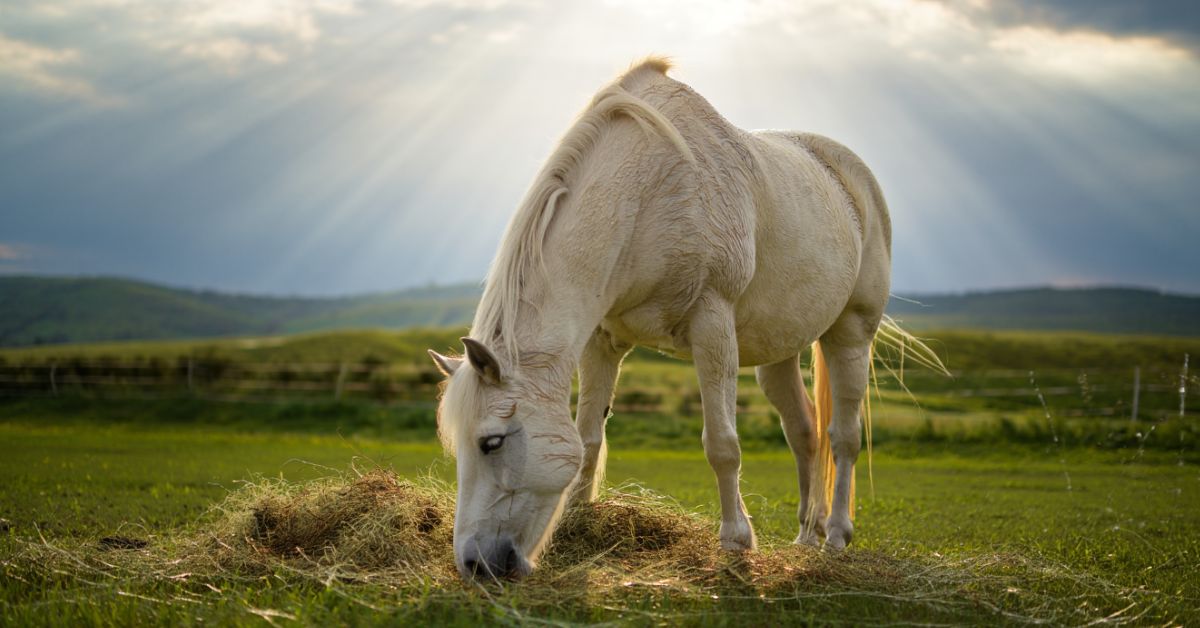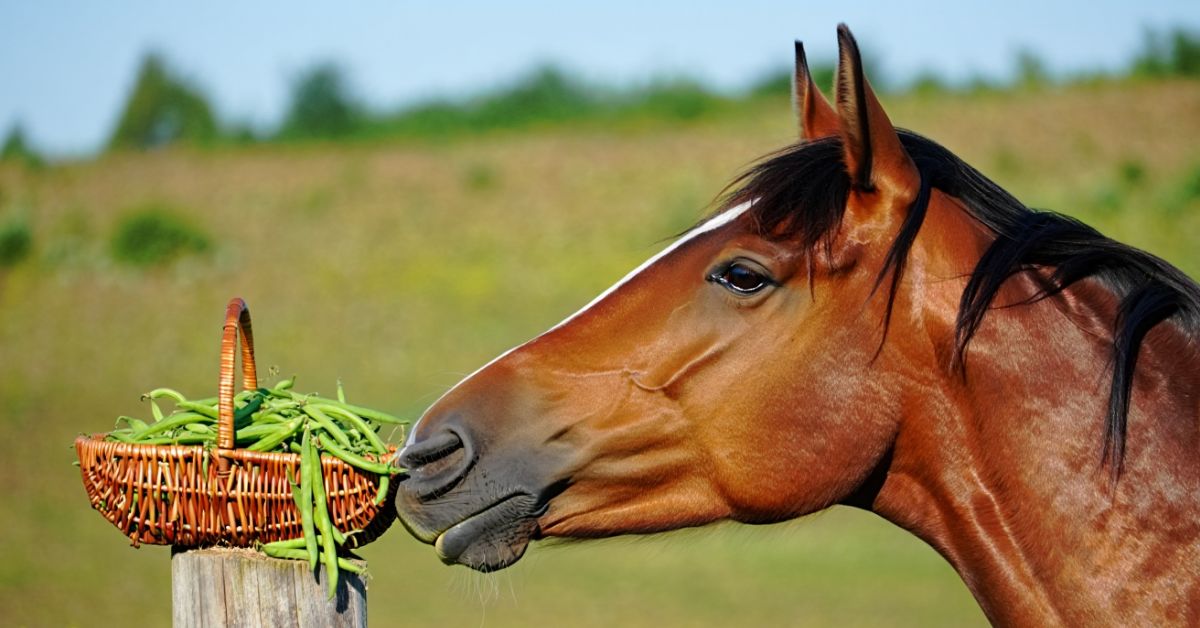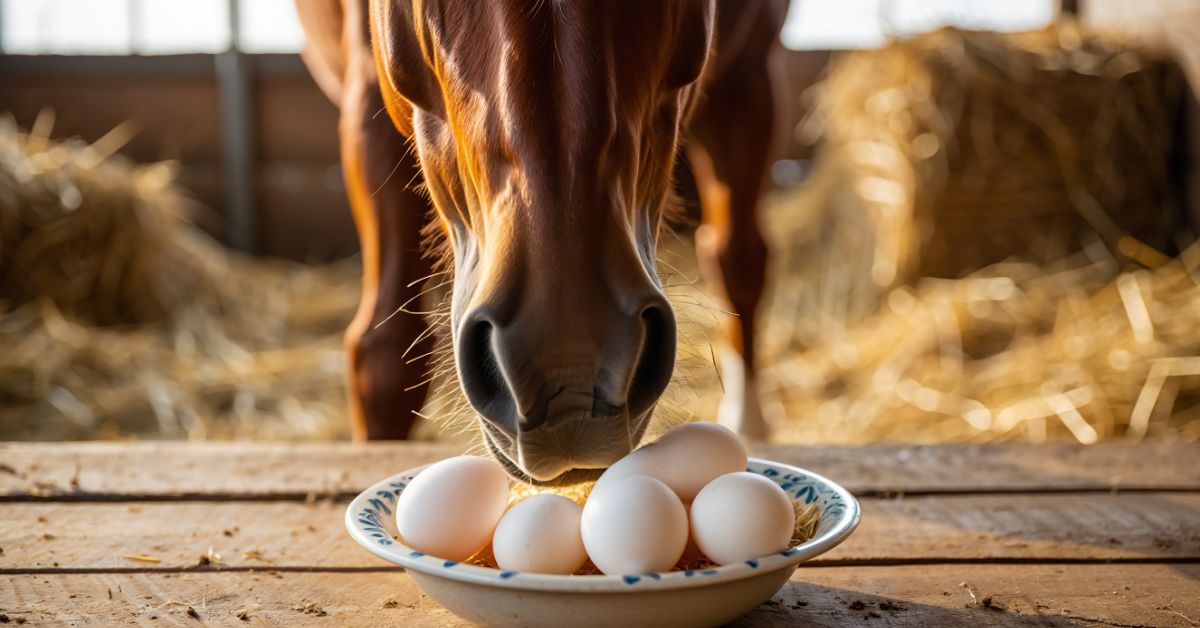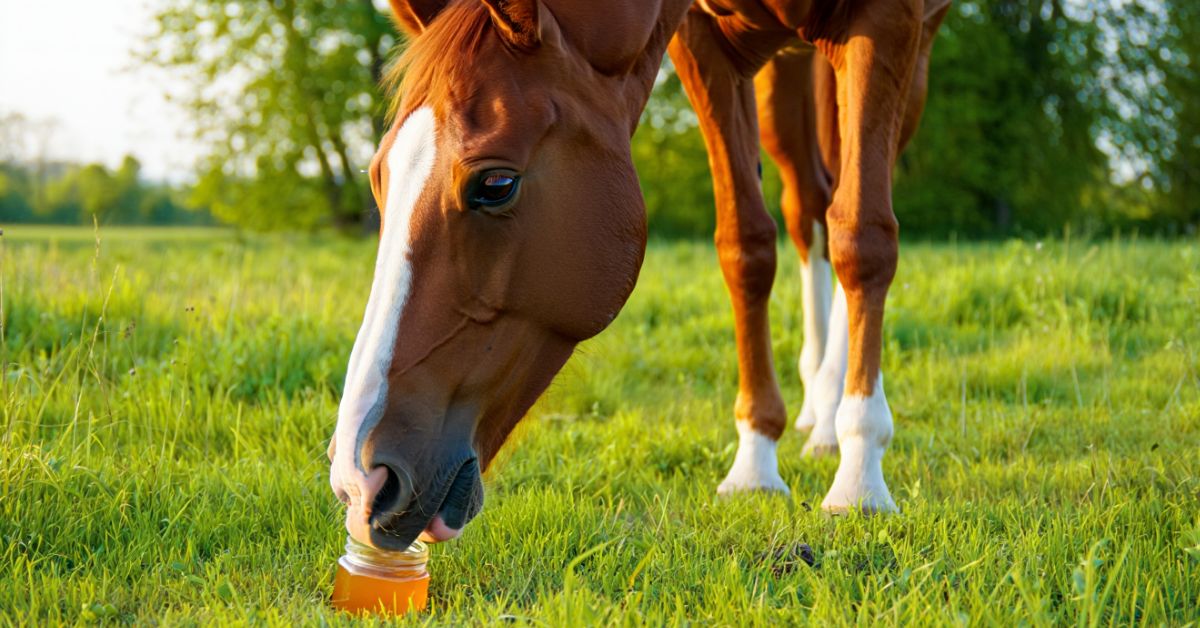
Can Horses Eat Honey? A Sweet Treat or a Risky Snack?
Ever watched a bee buzz by the barn and wondered if that golden nectar it produces could be a treat for your horse? You're not alone. The question, "Can horses eat honey?" is a common one among caring horse lovers like you. The short answer is yes, adult horses can eat honey in moderation, and it can even offer some surprising benefits. But like any treat, it's not as simple as just grabbing a jar from your pantry.
Think of it like this: a small square of dark chocolate for you is a delightful treat, but a whole bar isn't the healthiest choice. It's the same for our equine friends. For them, honey is a concentrated source of natural sugars that can be a wonderful tool when used correctly, but a potential problem if overfed.
In this guide, we'll explore the sweet side of honey for horses, uncovering its hidden benefits, the potential risks to be aware of, and exactly how you can safely share this golden gift from nature with your four-legged companion. ✨
The Golden Benefits: Why Honey Isn't Just Empty Sugar
While primarily made of fructose and glucose, honey is more than just a simple sugar. It's packed with a surprising number of beneficial compounds that can support your horse's well-being. This is where honey truly shines and sets itself apart from other sweeteners like molasses.
-
A Natural Energy Booster 🚀: The natural sugars in honey are quickly absorbed, providing a rapid source of energy. This makes a small amount of honey an excellent energy source for horses, particularly for endurance horse honey supplement needs or as a pick-me-up for a performance horse after strenuous exercise.
-
Packed with Antioxidants: Honey contains powerful plant compounds called bioflavonoids that act as antioxidants. These antioxidants help protect the body's cells from damage and can give your horse's horse immunity a gentle boost.
-
A Soothing Syrup for Coughs: Have you ever reached for honey when you have a sore throat? It can have a similar soothing effect for your horse. Honey for horse cough is a traditional remedy that can help coat an irritated throat. Some homemade remedies even combine it with onions for its antimicrobial properties.
-
Incredible Wound Healing Properties: This is where honey, especially Manuka honey for horses, truly stands out.] Used topically, medical grade honey for horses is a powerhouse. Its honey antibacterial properties equine are well-documented, creating an environment that inhibits bacterial growth and promotes faster healing for cuts and wounds. It also has natural anti-inflammatory for horses benefits, reducing swelling and discomfort.
"Honey has been used to help healing of wounds since ancient Egypt... Recent interest in manuka honey has been for its superior antibacterial activity.
Raw Honey vs. Processed Honey: Does It Matter?
When choosing a honey, the type definitely matters. Raw honey vs processed honey for horses is an important distinction. Raw honey is unfiltered and unpasteurized, meaning it retains more of its natural vitamins, enzymes, and antioxidant benefits. Processed honey, often found in bear-shaped bottles in supermarkets, is heated and filtered, which can remove some of these beneficial compounds.
For topical use on wounds, it is crucial to use medical grade honey for horses. Regular honey off the shelf, including raw honey, can contain bacterial spores that are harmless when ingested by adult horses but can be dangerous in an open wound.
Sweet Caution: The Risks of Honey for Horses
Despite its benefits, feeding honey to horses comes with important precautions. The main concern is its high sugar content.
Here's what you need to watch out for:
-
High Sugar Intake: A horse's digestive system is designed for a high-fiber, low-sugar diet. Too much sugar can disrupt this delicate balance. One tablespoon of honey contains about 17 grams of sugar.
-
Horses with Metabolic Issues: For horses with Equine Metabolic Syndrome (EMS) or insulin resistance, honey is a big no-no. Can diabetic horses eat honey? The answer is that it should be avoided, as it can cause dangerous spikes in blood sugar.
-
Dangers for Foals: NEVER feed honey to foals. Just like with human infants, honey can contain spores of the bacteria Clostridium botulinum. An adult horse's mature digestive system can handle these spores, but a foal's cannot, leading to the risk of botulism in foals from honey, which can be fatal.
How to Safely Feed Honey to Your Horse
So, you've weighed the pros and cons and decided a little honey could benefit your horse. How do you do it safely? Moderation is key.
Dosage of honey for horses:
A good starting point for an adult horse is one to two tablespoons per day at most. This is enough to provide benefits without overloading them with sugar.
Creative ways to feed honey:
-
Masking Medications: Is your horse a picky eater? Using honey to mask horse medicine is a classic trick. A little bit of sticky sweetness can make even the most bitter medicine go down easier.
-
A Topping for Feed: Drizzle a small amount over their regular horse feed. This can be especially helpful to encourage a horse with a poor appetite to eat.
-
A Training Treat: You can put a tiny dab on the bit or on the end of a carrot as a high-value reward during training sessions.
I've personally found that a teaspoon of honey mixed with supplements is a game-changer for my picky gelding. He licks his feed bucket clean every time!
The Final Word: A Treat to Handle with Care
So, can horses eat honey? The answer is a resounding yes, but with knowledge and care. Is honey safe for horses? For most healthy, adult horses, it is. It offers a fantastic natural source of quick energy and antioxidants. For topical applications, its healing properties are truly remarkable.
However, the high fructose and glucose in horse diet from honey means it's not suitable for every horse, especially those with metabolic conditions. And it is a strict no for foals.
By understanding both the brilliant benefits of honey for horses and the potential risks of honey for horses, you can make an informed decision for your beloved equine partner.
FAQ: All About Honey for Horses
1. Is raw honey toxic to horses?
No, raw honey is not toxic to healthy adult horses. The main concern with raw honey is for topical wound use, as it can contain bacterial spores; for wounds, always use sterile, medical-grade honey.
2. How much honey can I give my horse?
A safe amount for most adult horses is one to two tablespoons per day. Always start with a smaller amount to see how your horse tolerates it.
3. What's the difference between honey vs molasses for horses?
Both are used to make feed more palatable. Molasses is a byproduct of sugar refining and is higher in certain minerals. Honey is a more natural product with added antioxidant and antibacterial benefits. Both are high in sugar and should be used sparingly.
4. Can I use honey for my horse's gastric ulcers?
There is some anecdotal evidence that Manuka honey, sometimes mixed with aloe vera, can be a soothing tonic for equine gastric ulcers honey. However, you should exercise caution with horses prone to ulcers and always consult your vet before trying new treatments.
5. How do I use honey for horse wounds?
For honey for horse wounds, you must use medical grade honey, often Manuka honey, which is sterilized.Clean the wound, apply a layer of the honey, and cover it with a sterile bandage. Its antibacterial properties help prevent infection and speed up healing.
